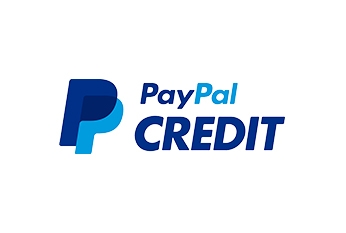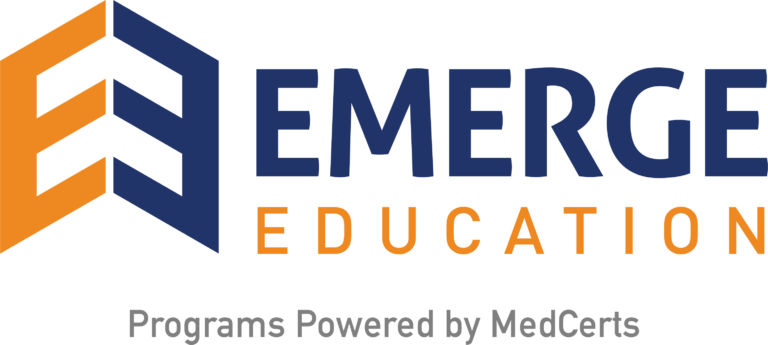Advance Your
Medical Assistant
Career
Inquire Today
If you’re ready to start your career, connect with a Training Specialist today to answer program-specific questions.
What does a Medical Assistant do?
Medical assistants often find themselves working in fast-paced environments, helping to ensure that patient care and office operations run as smoothly as possible. From processing intake to recording vital signs, their daily schedule is always made up of many essential tasks.
After successfully completing the Medical Assistant program, students will be prepared to provide direct patient care, assist with procedures, prep exam rooms, and manage laboratory tests and samples. Their workplace responsibilities will vary with the location and specialization of the medical facilities where they are employed.
Where Can You Work?
Medical assistants work alongside physicians in physicians’ offices, hospitals, outpatient care centers, and chiropractors’ offices.
Requirements
- Web browser with internet connection
- Course registration & payment
Training Materials Provided
- Expert-led video based training
- eBooks: Medical Office Procedures and Administration & Clinical Medical Assisting
- Competency assessments
- National Certification exam fee
Medical Assistant
Outcomes
Healthcare employment is projected to grow by 13% from 2021 to 2031, according to the Bureau of Labor Statistics. This means that over the next decade there will be nearly 2 million new positions available for those interested in healthcare.
Skills Learned
Upon completion of this certified medical assistant program, you’ll learn a number of skills, including:
- Understanding basic human anatomy and utilizing medical terminology in order to effectively communicate in a healthcare facility
- Comprehending the use of diagnosis and procedure codes as they relate to electronic health records
- Recognizing the importance of infection control and environmental safety in general, specialty, and surgical practices
- Understanding specimen collection techniques, cardiopulmonary testing, pharmacology and medication administration
- Administering medications and assist with minor procedures
- Recording vital signs, taking medical histories, and preparing patients and rooms for examinations
- Handling laboratory specimens and providing patient education
- Complying with HIPAA/HITECH, OSHA and CMS and other healthcare regulations and laws as they apply to patient information
Courses
Professionalism in Allied Health |
Medical Office Procedures and Administration |
Introduction to Human Anatomy and Medical Terminology |
Clinical Medical Assisting |
Program Preview
Medical Assistant Job Possibilities
HIDDEN
Clinical Medical Assistant
ESTIMATED SALARY
HIDDEN
Medical Office Assistant
ESTIMATED SALARY
HIDDEN
Doctor's Assistant
ESTIMATED SALARY
Certification Information
Upon completion of your medical assistant training, you are eligible to take the Certified Clinical Medical Assistant (CCMA) and Certified Medical Administrative Assistant (CMAA) exams, issued by the National Healthcareer Association (NHA).
CCMA
Certified Clinical
Medical Assistant
The Certified Clinical Medical Assistant (CCMA) certification can help you stand out in the world of medical assistants and allows you to join the workforce with an advantage.
CMAA
Certified Medical Administrative Assistant
The Certified Medical Administrative Assistant (CMAA) certificate helps you gain the skills to provide administrative support in a medical setting. Demonstrate your expertise in the field and become qualified for a number of administrative duties, as well as direct contact with patients in clinical settings.
Issuing Authority

Payment Options
Pay in full using any major credit card, PayPal, or Venmo. Select “credit card” as your payment option.
![]()

![]()
Apply for PayPal Credit and pay zero interest if your balance is paid in full within 6-months. Complete a quick application and you’ll receive a credit decision within seconds.


Program Comparison
Emerge Education | Community College | |
|---|---|---|
Program & Tuition Cost | $4,000 average | Up to $20,000 |
Exam Fees, Books & Materials | Included | Up to $750 |
Job Ready In | 3–6 months | 24–48 months |
Schedule Flexibility | On-demand 24/7 | Set class schedule |
Travel Requirements | None: 100% online | On-campus classrooms |
Student Support | Personal Advisors: text, call and email access | Professors: scheduled office hours |
Career Coaching | Exam-tailor + soft-skill training to build well-rounded careers | Exam-based + prerequisites and electives to meet credit |
Content Delivery | 3D animations, immersive environments, interactive activities, game-based learning | Professor lectures |
Meet Your Training Specialist
Your Training Specialist will help you understand your program, assist with clinical placement, and answer any questions you have! Contact your Training Specialist to learn more about your program and how to start achieving your goals.
FAQ
Students have access to complete program materials for two years. But most students finish their courses sooner.
Note: Some programs require a clinical component beyond the online coursework which extends the program length.
Certified medical assistants deal with the public directly, so they need to be dependable, great communicators, active listeners and efficient problem solvers. Since certified medical assistants handle numerous clients' health records throughout the day, they should also be well organized and able to multitask effectively with attention to detail.
Most full-time certified medical assistants work a regular 40-hour week. Some work part-time, evenings or weekends.
Certified medical assistants perform administrative and clinical tasks under direct physician supervision. Physician assistants examine, diagnose and treat patients under a collaboration agreement with a physician, who may or may not be on-site.
The duties of a medical assistant vary from one practice to the next and may be limited by state laws. Responsibilities vary from office to office, depending on location, size and specialty. Administrative duties may include the following: answering phone calls, greeting patients, updating and filing patient medical records, scheduling appointments, billing and more. Clinical duties may include the following: taking medical histories, collecting and preparing laboratory specimens, explaining treatment procedures to patients, drawing blood, taking electrocardiograms and more.
Medical assistants are one of the most versatile allied health professionals. They are cross-trained to perform clinical and administrative responsibilities.
Emerge Prepared™ is a next-level education solution that addresses the critical need to prepare high school students for career readiness upon graduation with highly sought-after healthcare and IT certifications. Emerge Prepared is designed to inspire you to find your pathway, equip you with a competitive advantage and empower you to succeed.
INQUIRE TODAY
If you’re ready to get started, connect with a Training Specialist today to answer program-specific questions! See the enrollment information below to start the program.
